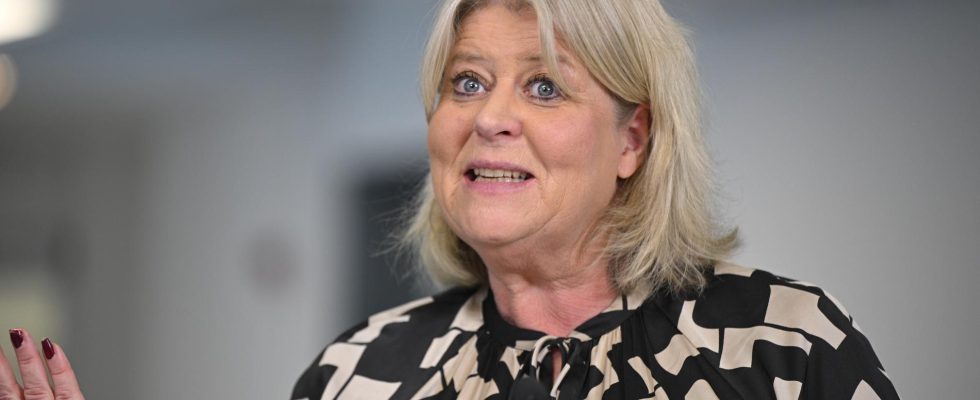unsaveSave
expand-left
full screen Social Services Minister Camilla Waltersson Grönvall (M). Archive image. Photo: Anders Wiklund/TT
Many children and young people who have been placed in, for example, family homes are left without healthcare visits and dental care, a new survey shows. Now the Minister of Social Services promises “a holistic approach” to improve the situation.
Only a third of children and young people in family homes and HVB have their physical and mental health examined, according to the survey carried out by the National Board of Health and Welfare. When it comes to dental health, it’s even worse – only 15 percent get their teeth checked.
Social Services Minister Camilla Waltersson Grönvall (M) says that the survey confirms a gloomy situation that was already known.
– This one makes me angry, sad and concerned that the children and young people who are in society’s care do not receive the health and medical care to which they are entitled and which society has a responsibility to ensure, she says.
As a measure, the government must launch what Camilla Waltersson Grönvall calls a comprehensive approach to the work with the health of placed children and young people.
– We look over the entire care chain, from small children to HVB, family homes, Sis homes and sheltered accommodation where we particularly focus on dental health, among other things, she says.
Last week, the government announced that it wants to replace the Sis homes with a completely new system and that it wants to investigate a tougher grip on HVB homes, with measures such as urine tests, visits and limited communication. With this also comes the health investment, explains Camilla Waltersson Grönvall. She particularly mentions the work to strengthen mental health.
– We spend 1.6 billion on the work against mental illness. It is both about shortening the queues for bup and being able to ensure that first-line psychiatry in primary care meets children and young people much earlier, she says.
